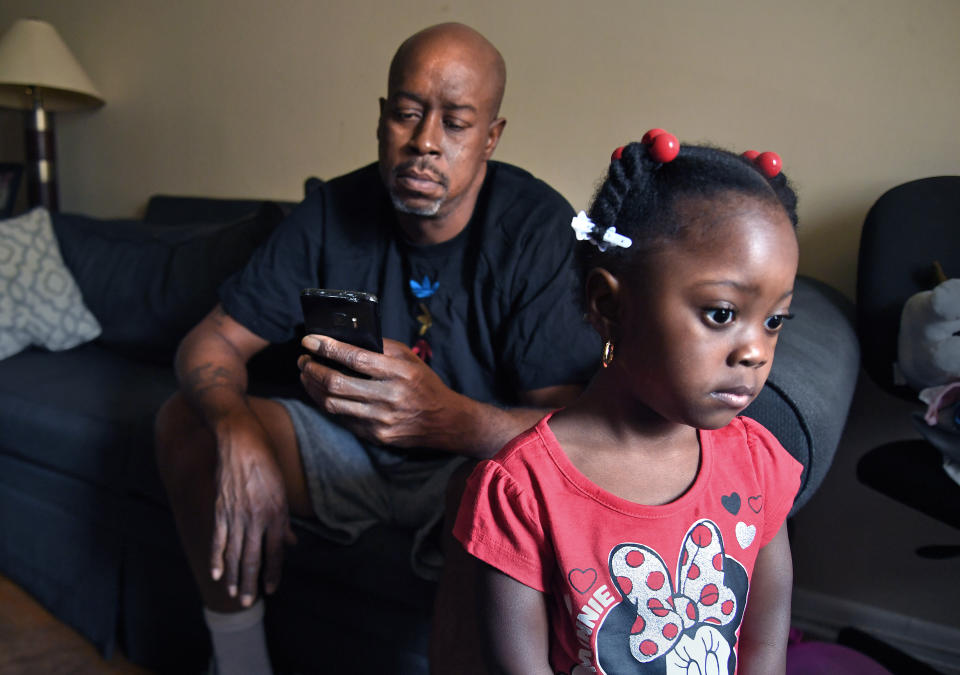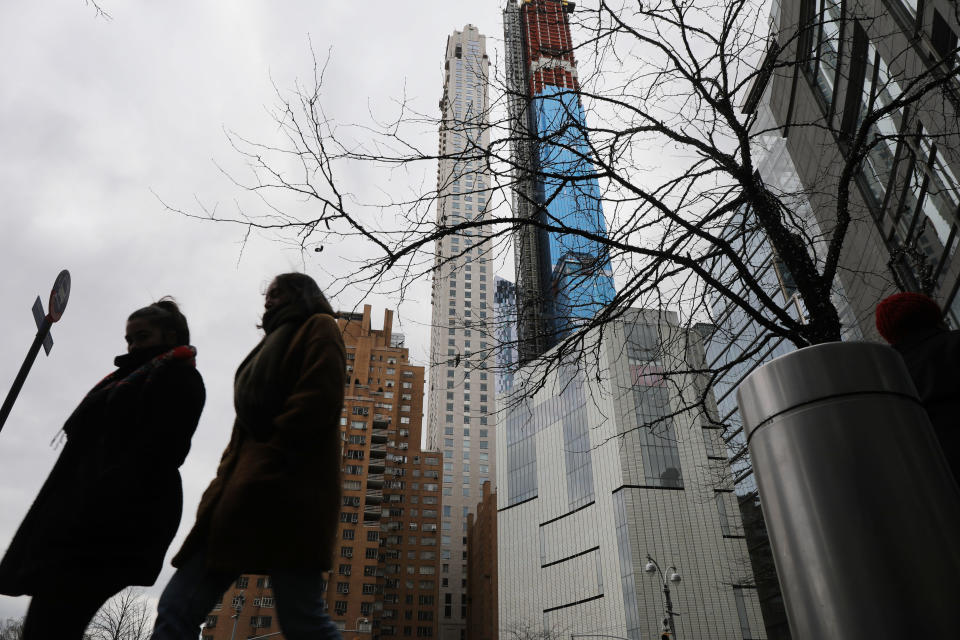Stock market highs, booming housing, and millions unemployed: A tale of two Americas amid the coronavirus pandemic
Six months after getting laid off from a Chicago restaurant, Torianna Chess is still jobless and struggling to stretch her unemployment benefits to cover her bills.
“All I have in my savings is enough to cover September’s rent,” Chess, 27, told Yahoo Money. “I'm not really sure about October, November, and the next couple of months.”
More than 2,100 miles west in San Diego, the fortunes are reversed for Maresa Friedman and her husband. Both remain employed and aren’t spending money for travel, work meals, or other everyday perks since the pandemic began.
“I’ve been able to save around $5,000 to 6,000,” she said.

Welcome to the pandemic economy in America.
As stocks and housing bounce back in big ways, the net worth of many higher earners — whose jobs also remain intact — is booming after initial setbacks in the spring. But for many lower to middle-income Americans, the coronavirus crisis has erased livelihoods, jeopardized housing, and made it harder to achieve financial stability.
“Everyone suffered when the economy shut down, but the recovery looks so different,” said Claudia Sahm, a former principal economist at the Federal Reserve Board of Governors and now director of macroeconomic policy at the Washington Center for Equitable Growth. “For high-income [earners], their stock portfolios are back, better than they were. But there are millions of Americans that still don't have jobs, they don't have the income they had before.”

‘The pain is concentrated at the bottom’
High- and middle-income earners did feel the pain from this recession early on, absorbing wage cuts during the pandemic. Even entrepreneurs such as Friendman had to change gears.
After the pandemic crushed her event-planning business, Friedman transitioned to creating virtual conferences. The pivot succeeded, with her new business bringing in six figures, while her husband kept his job as a vice president at a major bank.
But that wasn’t the case for everyone.
“Big contracts and events dried up overnight. A lot of people lost jobs and contracts,” Friedman said, noting that people she knew worked in tourism or hospitality, two sectors that employ many lower earners who have borne the brunt of job losses.

In a typical recession, the hardest-hit industries are manufacturing and construction, which shed a lot of relatively high-paid jobs, said Dean Baker, senior economist at the Center for Economic and Policy Research. But in this recession, the service sector has been on the front lines of job losses.
“It's a very, very different story than what we typically see in a recession,” Baker said. “Overwhelmingly, the pain is concentrated at the bottom.”
Read more: Here’s what you need to know about unemployment benefits eligibility
The service industry is also taking a longer time to recover. Chess has been looking for a service job for months, but has had no luck.
“There aren’t any jobs for me currently hiring,” she said. “They're just rehiring people that were working for them before and that weren't working due to the pandemic.”

‘My phone bill is $60 a month’
Homeowners like Friedman are also enjoying an increase in home values, even after the housing market hit pause in April during the state shutdowns.
Housing values increased 4.3% in June, according to the latest S&P CoreLogic Case-Shiller home price index, with San Diego — where Friedman lives — rising 5%.
That gain adds to the equity she built up in the last decade. Her townhome, which she shares with her husband and two teenage children, has increased in value from $300,000 to $610,000. With only $72,000 left to pay in her mortgage, she’s accumulated an estimated $530,000 in equity.
“We have tons of equity in the home” Friedman, 36, said, “and people thought we were crazy to live in a townhome.”

Chess also lives in a townhome with her disabled brother and her six-year-old son, but one that she rents for $900 a month. When she was getting the extra $600 a week in unemployment benefits under the CARES Act, she could manage her rent. But since those benefits expired, she only gets $242 a month in unemployment and struggles to pay for everything.
Read more: Rental aid: Here's where you can find help in every state
“My phone bill is $60 a month,” said Chess, who has to deal with both joblessness and housing insecurity.
“There are people who already own their homes and have their jobs and who are in a [better] financial position,” said Mark Zandi, chief economist at Moody’s Analytics, “whereas renters along with low- and middle-income earners are struggling with unemployment and having trouble making rent.”
‘I don’t have stocks’
Following the swoon in March, the stock market has increased by 51% and Americans with investments in retirement or brokerage accounts have reaped the benefits. Those without missed out.
“I think the benefits of the stronger stock market are very concentrated as only half of Americans own any stock, and they are generally boomers and white Americans,” Zandi said. “The vast majority of Americans and minority groups do not benefit.”
Friedman and her husband, a pair of “cash hoarders” as they call themselves, lost 10% in their retirement account that they haven’t yet recovered. But they aren’t concerned.
“I figure over time it will build,” she said. “It’s a short-term thing.”
Chess, who is part of the 45% of Americans who don’t own stocks, also doesn’t worry about the market.
“It doesn’t help me,” she said, “because I don’t have stocks.”
‘It's likely that wealth inequality has increased’
This so-called K-shaped recovery — where higher earners are bouncing back, but low earners are not — could widen the wealth inequality in the country unless there’s more government stimulus.
“There's going to be a big cleavage opening up,” Sahm said, “or at least that's where we're headed.”

More government intervention could mitigate that, Sahm said. Thanks to stimulus checks and expanded unemployment benefits, personal income grew in the second quarter when the nation’s GDP shrunk. But that support has evaporated with nothing yet to replace it.
That may mean a longer recovery for those at the bottom, like Chess, who said she’ll need at least six months — and a job — to return to where she was before the pandemic hit.
“It really messed up my life,” she said. “It's going to be hard to come back.”
Dhara are Denitsa are reporters Yahoo Money and Cashay. Follow them on Twitter at @Dsinghx and @denitsa_tsekova.
Read more:
‘Gone in 90 minutes:’ Rental Assistance is quickly running out for struggling renters
‘Not a rent holiday’: Trump’s new eviction order leaves renters on hook for back pay
Coronavirus: Trump administration attempts to prevent evictions using CDC quarantine authority
Read the latest financial and business news from Yahoo Finance and Yahoo Money
Follow Yahoo Finance on Twitter, Facebook, Instagram, Flipboard, SmartNews, LinkedIn, YouTube, and reddit.

 money
money 
